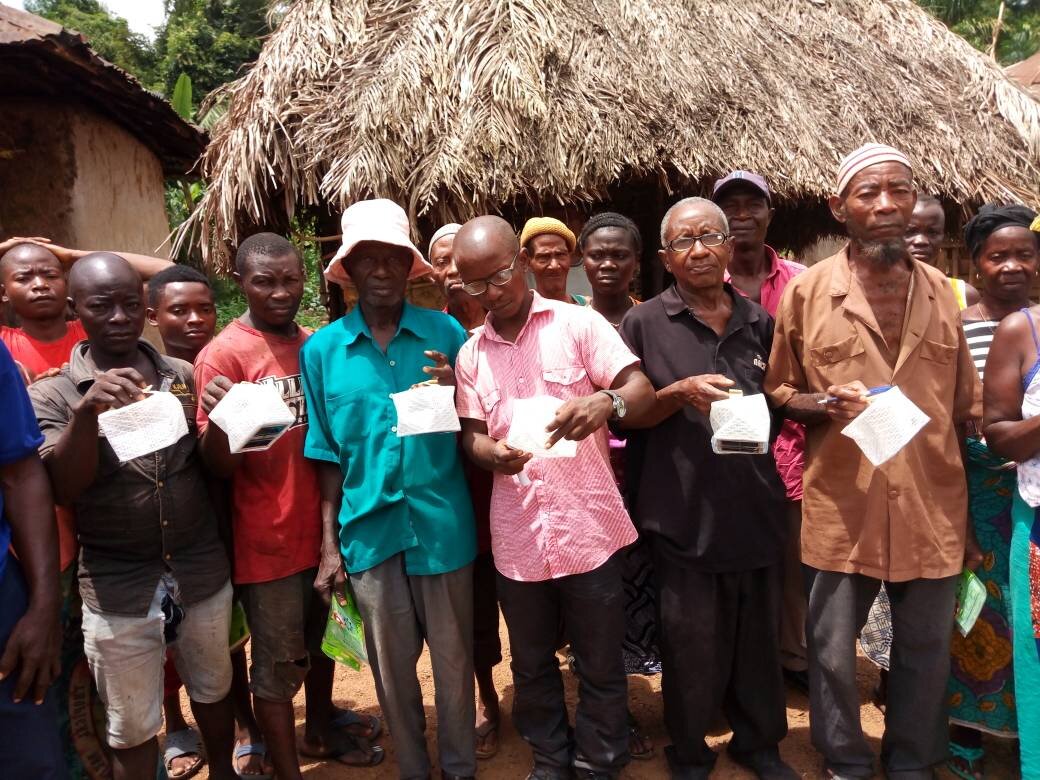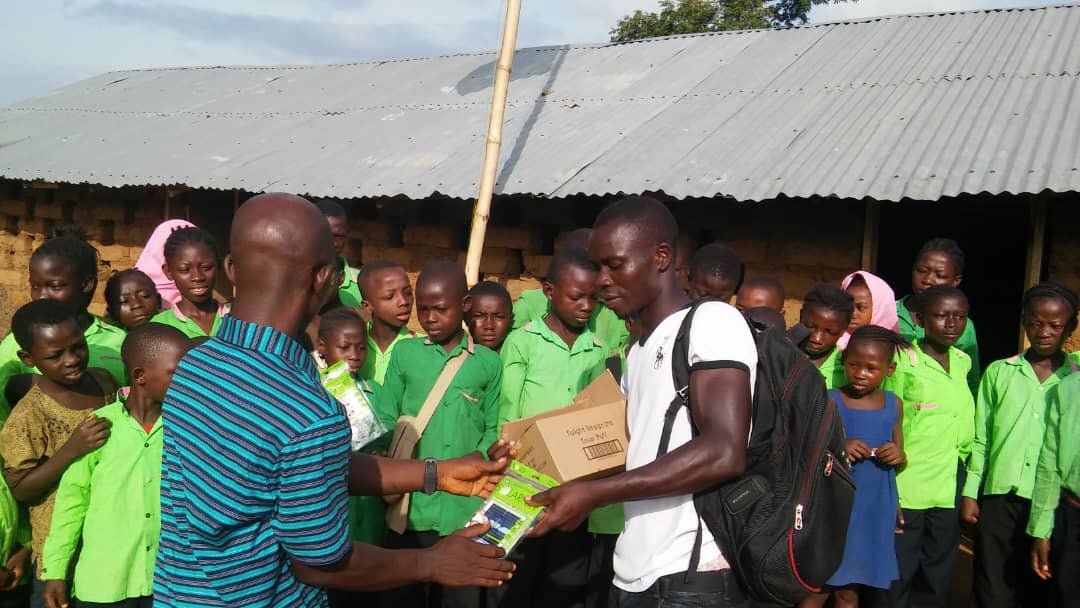Education
INTRODUCTION
EnviroOne’s education programming integrates regenerative agriculture and clean water awareness to strengthen rural resilience in Sierra Leone. Recognizing the interdependence of healthy soils and safe water on community health and food systems, this initiative empowers farmers, youth, and women with the knowledge and tools needed to restore ecosystems, improve water access, and promote behavioral change through participatory learning.
ACTIVITIES: PARTICIPATORY TRAINING ON REGENERATIVE AGRICULTURE
ACTIVITIES: PARTICIPATORY TRAINING ON WATER WELL MANAGEMENT & USE
ACTIVITIES: EDUCATING FARMERS & SCHOOL CHILDREN ON SOLAR LAMP USE
In 2018, EnviroOne embarked on a successful special campaign to provide solar lamps to our farming communities and their school children.
We partnered with SoLight Design (https://solight-design.com/products/donatelight?variant=1282861629460). Together we raised enough funds to provide free solar lamps to school children, farmers, and women in 5 villages in our project sites.
IMPACT
Over 100 smallholder farmers, youth, and women trained in regenerative agricultural practices including composting, agroforestry, and soil restoration.
Clean water education campaigns conducted in three communities, focusing on water purification, hygiene, and well protection.
Local educator capacity built by training 10 peer facilitators and youth educators.
Increased adoption of soil-enhancing and water-safe practices in at least rural communities
Improved crop yields and reduction in waterborne illnesses
Strengthened local knowledge and leadership through trained facilitators
Scalable model for climate- and health-responsive education has now been built that can be adopted in rural West Africa













